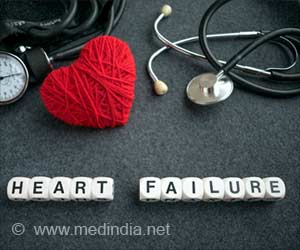Experts are urging people to listen to the legs and be alert to the signs of peripheral arterial disease, or P.A.D.

If you have blocked arteries somewhere in the body, you are likely to have them elsewhere.
Thus, P.A.D. is a red flag that other arteries, including those in the heart, are likely affected-increasing the risk of a heart disease, heart attack and even death.
People with P.A.D. may have one or more of the following symptoms: 'Claudication' - fatigue, heaviness, tiredness or cramping in the leg muscles (calf, thigh or buttocks) that occurs during activity such as walking and goes away with rest.
Foot or toe pain at rest that often disturbs sleep kin wounds or ulcers on the feet or toes that are slow to heal (or that do not heal for 8 to 12 weeks).
"Often, people think leg discomfort or slow healing sores are just a part of aging, yet they can be signs of a serious disease. Through early detection and proper treatment, we can reduce the devastating consequences of P.A.D. and improve the nation's cardiovascular health," said Joseph Caporusso of the P.A.D. Coalition.
Advertisement













